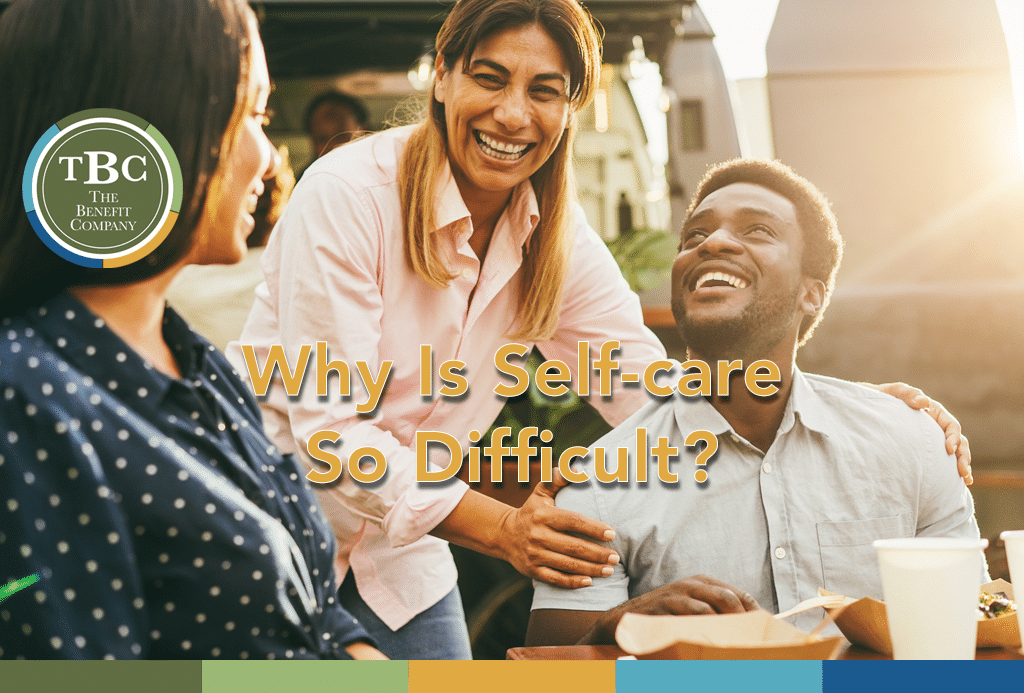One of the major components of the Mental Health First Aid (MHFA) training for helping someone experiencing a non-crisis mental health challenge is to encourage the individual to engage in self-care. As an instructor for MHFA, each time I conduct the training I am struck by how difficult it can be to help someone engage in self-care.
What is self-care? Self-care is whatever we intentionally do to improve our physical, mental, or emotional health. Or, as the National Council For Behavior Health states in MHFA, it “refers to activity and practices that you can engage in on a regular basis to reduce stress and maintain and enhance your short- and long-term health and wellbeing.” Most of us know that self-care includes eating nutritiously, getting appropriate sleep, and ensuring we are engaging in physical activity. However, it is much more. Spiritual disciplines such as prayer and meditation are forms of self-care. Engaging in a favorite hobby can be self-care. Socializing with friends, families, clubs, sports teams, and religious groups can be self-care. Simply taking a warm bath, resting, or taking our PTO and going on a vacation can be self-care.
Self-care is basic to our existence, yet attempting to engage in self-care can be met with incredible resistance. If self-care is good for us, and can even be something we enjoy, why is it so challenging to practice? Here are four top reasons.
- We lack a deeper understanding of why we need self-care. If we can grasp the necessity of self-care, then the hindrances to engaging in it will begin to fade. We have already defined self-care as anything we intentionally do to improve our physical, mental, or emotional health. These conscious efforts of self-care allow us to reset. They allow us to fully engage in work, with our families, and in our communities. Self-care makes us resistant to the negative effects of stress, helps prevent burnout, and enhances our self-esteem. Active self-care can prevent us from falling into crisis. Simply said, self-care allows us to successfully engage in life by preventing the challenges of life from overwhelming our physical, emotional, and mental wellbeing.
- We may be reluctant to engage in self-care because we think it is being selfish. We hamstring our life when we view self-care as an indulgence. Self-care is not an indulgence; It is a necessity for wellbeing. Just because we engage in something we enjoy, it doesn’t mean we are being self-centered. If a hike in the forest or a walk with our dog helps to clear our head, we shouldn’t view it as being selfish. If music, painting, fishing, or gardening allows our minds to reset, that is a necessary thing. If being with friends reenergizes us, then socialize. We can be grateful that the medicine we need for wellbeing can be found in doing things we enjoy.
- We may fear others will perceive us as lazy or selfish. We may not have a problem understanding the necessity of self-care, but we may fear how others may view our commitment to it. This is particularly true if our self-care involves something that might be considered fun or enjoyable. There are two ways to respond to those who may think we are being self-centered when we take time to reset our minds. First, we can ignore them, not allowing their ignorance to impede our wellbeing. Second, we can share with them the therapeutic value of the self-care activities with which we engage. For these people we can also reinforce the benefits of self-care by encouraging them to freely engage in activities that enhance their well-being and by applauding them anytime we see them engaging in self-care.
- We lack discipline. Self-care isn’t something we do just when we feel we are about to explode. Nor should it be something we engage in only when we begin to sense burnout. Rather, self-care should be a regular discipline in our lives. It should not be viewed simply as a cure, but as a preventative. Like brushing our teeth and bathing, self-care can be a regular part of our daily life. As a discipline it can be scheduled, planned, and protected from activities of lesser importance.
Whatever our hindrances may be to engaging in self-care, if we want to be successful at home, in our jobs, and in our relationships, it will require overcoming those roadblocks and being proactive in self-care. We can take note of the activities that reenergize, refresh, and enhance our mood and then make time to engage in those activities. As we become more self-aware of the benefits of self-care, we will grow in our understanding of what activities bring us the most benefit.
_______________________
Jack W. Bruce, Director of Population Health Wellbeing
- Population Health
- Employee Wellness & Wellbeing
- Human Resources
- Instructor for Adult Mental Health First Aid
- Instructor for Youth Mental Health First Aid
 The Benefit Company
The Benefit Company
